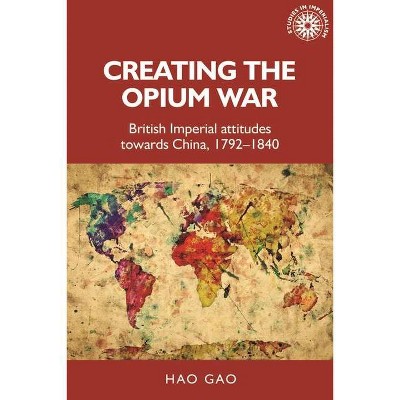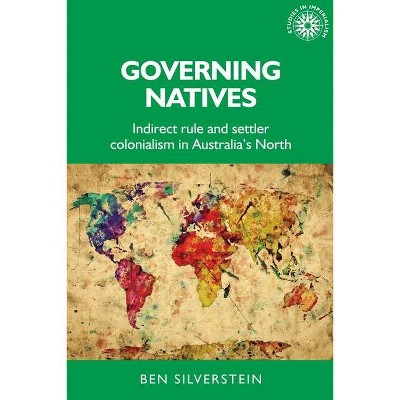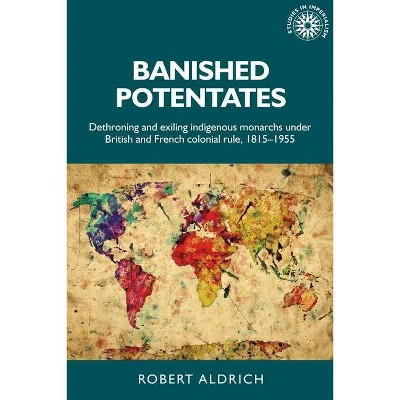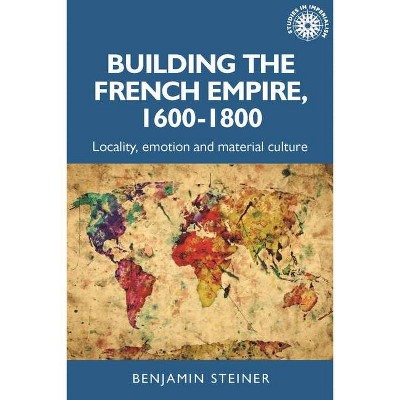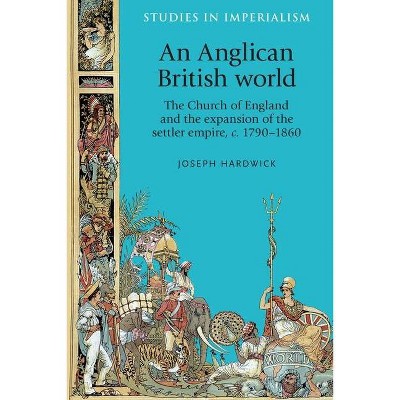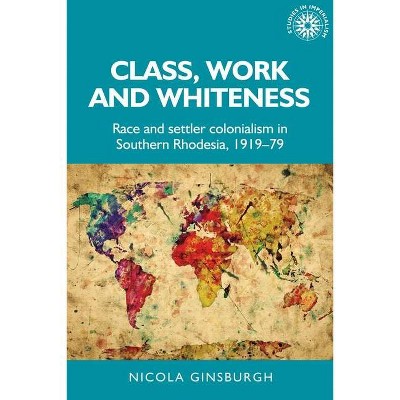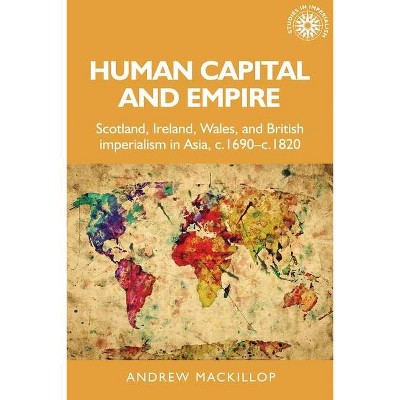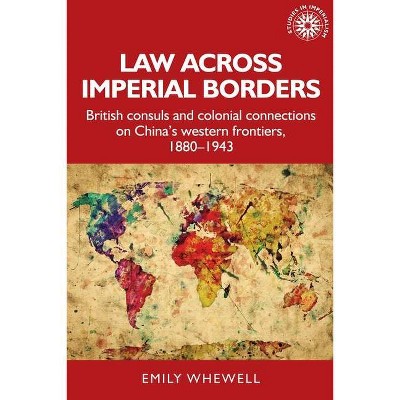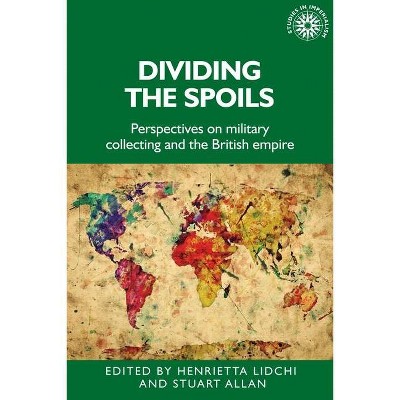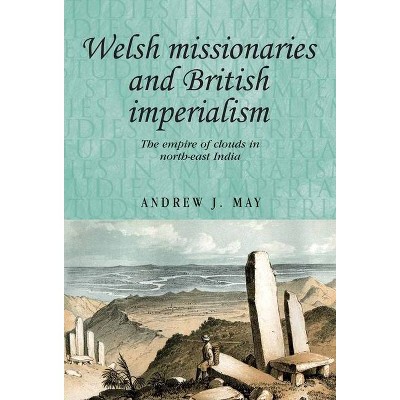The Entangled City - (Studies in Imperialism) by Gabriel Feltran (Hardcover)
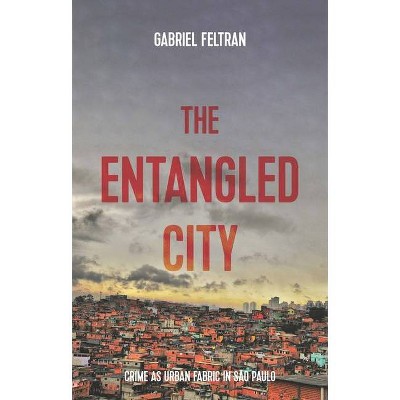
Similar Products
Products of same category from the store
AllProduct info
<p/><br></br><p><b> About the Book </b></p></br></br><i>This book tells the story of the 'world of crime' in São Paulo. In so doing, it presents a new framework to understand urban conflict in many other contexts.</i><p/><br></br><p><b> Book Synopsis </b></p></br></br><p>Based on 15 years of ethnographic fieldwork, the book understands the increasing violence seen in cities as a product of the emergence of transnational illegal markets since the 1970's, followed by the suppression of unskilled workers, in many places racialised young men from poor neighbourhoods. The book gives flesh and blood to these transformations through a careful study of Sao Paulo's case in Brazil. The first part of the book is based on the trajectories of three families, featuring young men affiliated with illegal markets such as drug dealing and car theft, although in very different situations. The clash between the everyday life patterns of these black families, compared to Sao Paulo's white middle classes, gives plausibility to the city's social conflict, most violent after the 80's, when transnational markets arrive and incarceration grows. Sao Paulo's case offers more: this conflict is 70% less lethal in 2017 than it was in the 2000, mostly due to the actions of the PCC (the main criminal group in Brazil, a transnational one) discussed in the second part of the book. The "world of crime" is stronger, yet at the same time homicide rates are falling. The final argument demonstrates that informality, illegality and criminal violence are produced entangling legal and illegal markets and formal/informal institutions, not only in Sao Paulo.</p><p/><br></br><p><b> From the Back Cover </b></p></br></br>This book tells the story of the 'world of crime' in São Paulo. In so doing, it presents a new framework to understand urban conflict in many other contexts. Chapters are based on ethnographic fieldwork started in 1997, when Brazil's elites still hoped to achieve the integration of the country into a modern global order, and of the urban poor into a prosperous nation. Both integration projects placed their hopes in the city of São Paulo. The metropolitan region had grown its population from 2.6 million in 1950 to 12.5 million in 1980. This demographic explosion manifested in the rapid expansion of self-constructed favelas, clandestine subdivisions and working-class neighbourhoods. Besides migration, the central pillars for the occupation of these territories up until the 1980s were factory work, the family and Catholic religiosity. These pillars have shifted radically since urbanisation. Schooling, access to services and urban infrastructure, although still precarious, have all grown considerably. Rural to urban migration was slowed; there was a dramatic transition in popular religious practices and average fecundity plummeted from 7.1 to 1.4 children per woman over just 40 years. Since then, two generations have been born and grown up in an urban world radically different from that in which their parents lived. However, it is the expansion of the 'world of crime' - a social universe and form of everyday authority established around global illegal markets - that would most radically transform the social dynamics of the city.<p/><br></br><p><b> Review Quotes </b></p></br></br><br>'This book combines parts of Feltran's <i>Irmãos: Uma Historia do PCC </i>(2018) in translation with related material from decades of ethnographic work in the periphery of São Paulo. The study is framed by the actions of the Primeiro Comando da Capital (PCC), a criminal organization founded in the prisons of São Paulo state that has challenged police forces and is credited with lowering homicide rates through its insistence on mediation within the criminal world. Feltran (Federal Univ. of São Carlos, Brazil) approaches this topic through the story of Ivete (a migrant from northeastern Brazil), her children, and her grandchildren, whom he witnessed come of age during his research. Tracing their paths through both criminal and non-criminal worlds provides a de-sensationalized perspective on the ramifications of the PCC's use of non-hierarchical debates to limit violence in and out of prison. Though indiscriminate murder has declined, kidnappings, robberies, and drug trafficking continue, and the cost of business, whether bribes or other payments, has increased. Feltran's juxtaposition of distinct systems of authority--that of the state, the PCC, and others--suggests the world of crime is not an aberration of modernity but rather an integral component of that historical process.' <i>J. M. Rosenthal, Western Connecticut State University</i><br><p/><br></br><p><b> About the Author </b></p></br></br>Gabriel Feltran is Professor at the Department of Sociology of the Federal University of São Carlos, Scientific Director of the Centre for Metropolitan Studies (CEM, São Paulo) and researcher at the Centre for Urban Ethnography at the Brazilian Centre for Analysis and Planning (CEBRAP)
Price History
Cheapest price in the interval: 30.49 on October 23, 2021
Most expensive price in the interval: 30.49 on November 8, 2021
Price Archive shows prices from various stores, lets you see history and find the cheapest. There is no actual sale on the website. For all support, inquiry and suggestion messages communication@pricearchive.us
